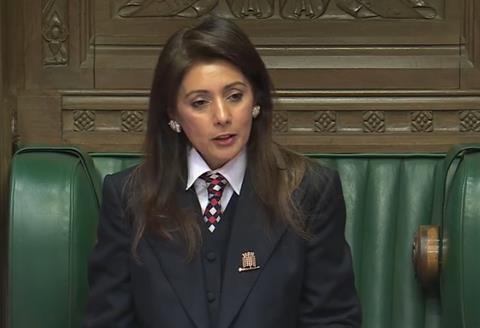Speculation around this week’s Budget has drawn criticism from the pensions industry, with several commentators warning that widespread rumours had prompted people to make irreversible financial decisions.
This year’s late autumn Budget, in the last week of November, was preceded by weeks of speculation and leaks around suspected changes to pensions and tax.
Two hours before chancellor Rachel Reeves gave her speech, the Office for Budget Responsibility (OBR) mistakenly published its forecast – and the entirety of the Budget announcements – in full.
An investigation has been launched into this, but Aptia UK president Malcolm Reynolds said the speculation in the weeks before the Budget was “far more damaging” for savers.
“Some people will already have made hasty financial decisions, with many more now questioning whether their long-term plans could be disrupted in the future.”
Malcolm Reynolds, Aptia
“In the three months since the chancellor announced the budget date, there has been too much speculation and kite-flying about measures affecting the taxation of pensions,” said Reynolds. “Had these measures been implemented, they would have significantly undermined confidence in pensions and negatively impacted savers’ outcomes.
“Some people will already have made hasty financial decisions, with many more now questioning whether their long-term plans could be disrupted in the future.”

Helen Forrest Hall, chief strategy officer at the Pensions Management Institute, echoed the concern, adding that the pensions industry had “consistently called for long-term pensions policy free from political cycles” – a request that has so far been ignored.
“With a Pensions Commission reviewing these issues in the round, piecemeal changes risk undermining confidence and creating unnecessary complexity,” she added. “What we need is an attractive and sustainable framework to reverse material undersaving and create stability.
“If we can get the long-term strategic direction right, we will create larger contribution flows and opportunities for long-term investment, including in UK private markets.”
Pre-Budget mania increasing
A recent survey, published on 21 November, highlighted the scale of the public’s anxiety around pensions.
A survey of Pension UK’s members found just over nine out of 10 (91%) were concerned about potential pension tax changes. Almost all respondents also agreed that leaks and rumours were damaging confidence in pension saving (97%), and 87% said the speculation reflected a lack of long-term policy stability.
“If there is one clear and obvious trend in the world of personal finances, it’s that pre-Budget mania and speculation are increasing,” said Mark Campbell, head of wealth at Isio. “More than ever, the Treasury has leaked policies and tested the water with ideas that we can be almost certain will never come to pass.”
Campbell has urged the government to approach such information releases differently.
“With perhaps the biggest change for many years set to come into effect in April 2027 when inheritance tax applies to defined contribution pensions, it is more important than ever to have a robust and well-thought-through plan in place,” he added. “In the meantime, the chancellor must end the uncertainty.
“We should be giving people the confidence to make positive long-term decisions which benefit their financial health.”

Stewart Hastie, chair of the Association of Consulting Actuaries, voiced concerns about continued “tinkering” in pensions, which he said had fed into the uncertainty and speculation that preceded the speech.
“Given the Pensions Commission review will begin to outline their thinking and work from next year to tackle the long-term savings adequacy challenges, we really need coherent long-term policy from government rather than further tinkering where the pain to implement falls on employers and employees,” added Hastie.
MPs’ fury at OBR leak
Prime minister Sir Keir Starmer was pressed on the OBR’s leak at Prime Minister’s Questions just before the Budget speech, with Conservative leader Kemi Badenoch calling for an enquiry.
Conservative MP Sir Mel Stride also voiced anger at the leak, stating: “The OBR report contains market-sensitive information. It is utterly outrageous that this has happened, and the leak may indeed constitute a criminal act.”

Nusrat Ghani, the deputy speaker of the House of Commons, gave a statement on leaks before Reeves spoke, saying the OBR’s error and other speculation “falls short of the standards that the House expects”.
“The premature disclosure of the contents of the Budget has always been regarded as a supreme discourtesy to this House and to all the democratically elected members,” Ghani said.
“I want [MPs] on both sides of the House to have adequate opportunity to hold the chancellor to account, rather than their hearing and reading about new policies daily in the media. Like many, I expected better.”
At the start of her speech, the chancellor said the leak was “deeply disappointing” and “a serious error” by the OBR.
In a statement, the OBR apologised for the “technical error” and confirmed that it had launched an investigation.


























